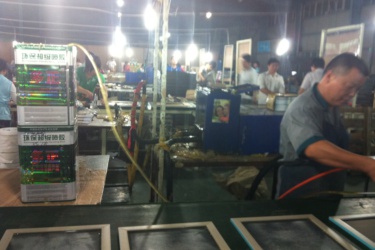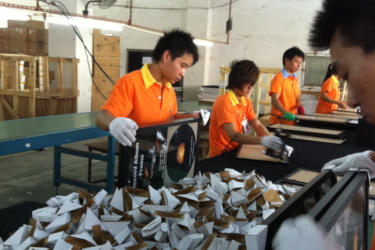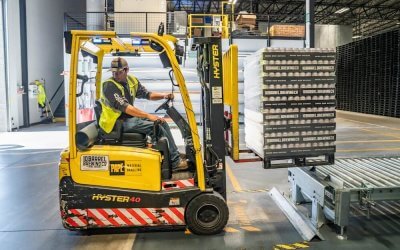Since the novel coronavirus (2019-nCoV) outbreak started in Wuhan last month, many people across the world have become quite nervous.
The WHO declared the outbreak a Public Health Emergency of International Concern and the U.S. government made the decision to deny entry to non-U.S. citizens who have traveled through China in the last 14 days.
Meanwhile, the government of the U.K. told all Britons that they should “leave China if they can.”
Fortunately, the spread outside of China has been fairly limited, with only 0.7% of all confirmed cases being discovered in other countries, as of February 4th.
The impact of this disease, however, is not limited to people’s health. There is an economic impact as well.
According to the Wall Street Journal (gated), Travel and luxury stocks tumbled after the news, with many airlines stopping flights to China and luxury brands that rely on Chinese consumers taking a hit. The Chinese Yuan went down as well, in relation to the dollar.
In addition to these issues, we expect this event will have major long-term effects on global supply chains, that will linger for quite some time.
Importers, along with their manufacturers in China, and even manufacturers in other countries will feel these effects in the months and maybe even years to come.
Here we talk about 2 impacts of this outbreak on global manufacturing.
#1 Chinese Factories Will Not Be Back to Normal Any Time Soon
The outbreak in Hubei Province happened to coincide with the Chinese Lunar New Year.

When factories reopen their doors after the extended holiday, they are unlikely to get back to normal capacity any time soon.
As many importers who work with Chinese factories will tell you, there is a nationwide factory shutdown that happens in January or February of every year.
Manufacturers close their doors for up to a month and are slow to ramp back up to full production capacity after they reopen.
This causes a hiccup in ordering schedules that most buyers know to plan for in advance.
What wasn’t expected, however, is that because of this outbreak, the government is requiring factories in most provinces to stay closed for an additional ten days.
When they open back up on February 10th, do you think they will just go back to business as usual?
If so, you’ll be in for a shock.
More than likely, factory bosses will have trouble getting their production lines fully staffed.
Some migrant workers will come back, but some may not want to, and instead, will choose to stay in their rural hometowns for a while until things calm down.
In addition, materials suppliers who normally reopen earlier than export factories have also been delayed which slows things down even more.
To add another wrinkle… Some factories may not even be able to re-open at all or will end up shutting down forever.
A recent article from the South China Morning Post discusses how “the coronavirus could be a ‘death blow’ for many of China’s small manufacturers if it’s not under control by April.”
It’s important to keep in mind that this outbreak impacts more than just Chinese factories and the importers who buy from them.
#2 Factories in Other Countries Will be Slowed Down Too
Global value chains have become increasingly complex over the last couple of decades.

Factories in Vietnam and other Southeast Asian countries rely on China for materials and components.
In a recent Wall Street Journal piece (Gated), we were reminded that “General Motors shuttered U.S. and European plants after earthquakes in Japan in 2011 and again in 2016 because vital parts that couldn’t be easily found outside Japan suddenly became unavailable.”
Vietnam’s largest exports include electrical equipment, machinery, and textiles, which we mentioned in a recent article about the country’s manufacturing sector.
However, to produce these products, they rely on components and materials that come from China.
With Chinese factories out of commission, the ripples of slowed production will extend to Vietnam and all other Southeast Asian countries as well.
You may think that by having diversified your supplier base to include non-Chinese factories that you’re safe from the effects of this disease.
The reality, though, is that things may not be that simple and your delivery schedules and inventory situation may suffer as a result.
Diversifying your supply chain helps limit the risk of geopolitical events, natural disasters, and viruses, but the tangled web of international value chains means that things are not always as simple as they seem.
What are Your Thoughts?
This unexpected virus outbreak is having major impacts on global business.
With factories in China expected to restart production on the 10th, we are closer to finding out exactly how things will transpire after the holiday.
Have you been in touch with your Chinese or non-Chinese suppliers?
How do you expect your business will be impacted by the outbreak?
Let us know in the comments below.




Near sourcing or nearshoring